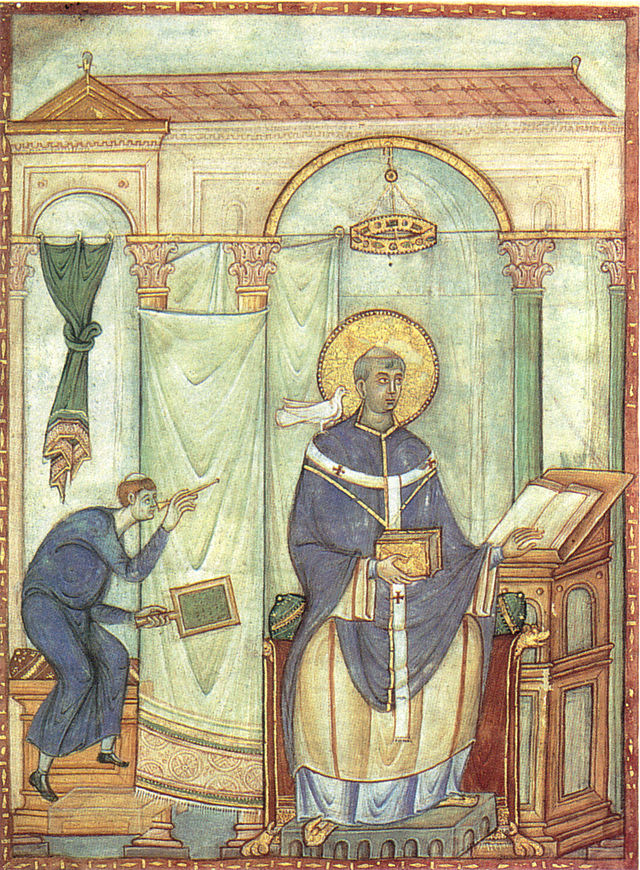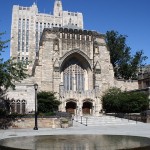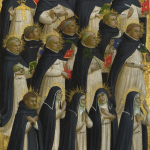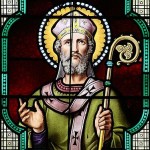In 2015, I’m reading and blogging through Ronald Knox’s collection of sermons on Christian exemplars, Captive Flames: On Selected Saints and Christian Heroes. Every Monday, I’ll be writing about the next portrait in the book, so you’re welcome to peruse them all and/or read along.

In this week’s chapter, Ronald Knox is describing St. Gregory the Great, and roots his sermon in an anecdote of St. Gregory punning on the name of an English captive, Angles, explaining that his true heritage was more Angels and his proper home wasn’t England but the Kingdom of Heaven. Knox uses this story to set up his discussion of the promise of the Catholic Church and the longing that it satisfies, in St. Gregory’s age and in his own.
The Church had just begun to realize that she was outliving the Roman Empire, and saw in the spreading of the faith not a philosophy to be preached to the world, but a citizenship to be extended to it…
In St. Gregory’s time, men were looking to the Church as the one abiding institution; it seemed to them that the break-up of earthly dominions and the shifting of nations which was taking place throughout Europe pointed to mere chaos ahead, unless hope lay in the Papacy. To-day, there is the same break-up of great dominions; the dame shifting of the limits of nationality. The world has altered its look since we learned our geography, and it has not got to the end of its alteration yet. In this new world, men still look to the Catholic Church and to Rome as the divinely-appointed centre of the Catholic Church, as the one abiding institution which will survive the new chaos.
Reading this chapter, I wondered if the hunger that Knox describes persists in our own time. In the Roman age, and in the age of the British Empire, it was more natural to take pride in citizenship in an eternal institution, and, when temporal governments failed, the Church promised to be that everlasting body that the people sought.
However, today, most people I know don’t belong to institutions that disappoint them by not enduring — most people I know don’t belong to long-lived institutions at all. There’s no desire to be kindled, disappointed, and redirected. Most of the institutions we interact with look like NOI, recently constituted, prone to sudden collapse/dispersal, but leaving us confident the constituent parts will be gathered up again and re-amalgamated, if still needed.
Now, when we ask Are We Rome? we’re asking how close we are to decline, not whether we can make good on the stability that Rome tried to offer. Knox took for granted that his listeners were looking for a body that could satisfy their desire to say “Civis [something] sum” but I have trouble imagining him delivering this sermon unaltered today. In order to pull it off, he might need to first stoke up his listeners’ attachment to whatever institutions they participated in, so that they would long for a stronger attachment and a stronger place to shelter.
I’ll be sending the monthly update on my book Arriving At Amen: Seven Catholic Prayers that Even I Can Offer this week, and if you get the email, you can enter a lottery to get an early copy.












